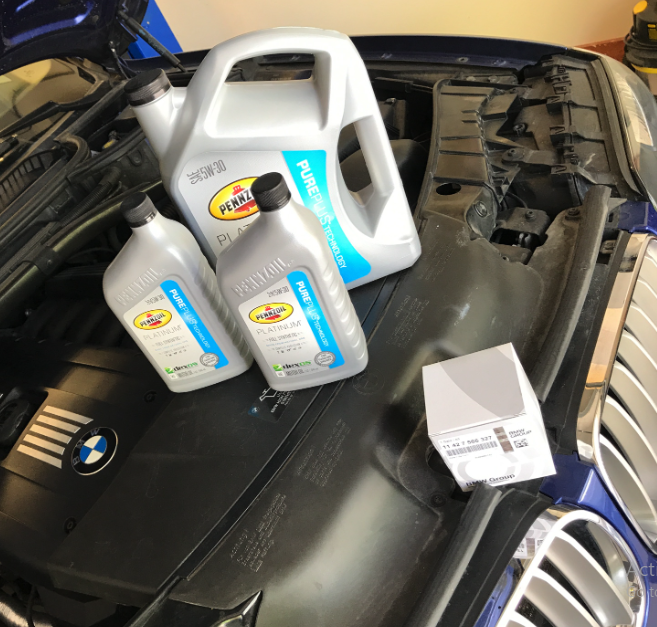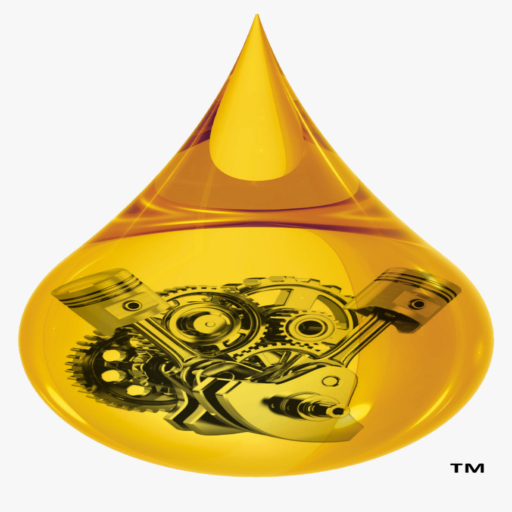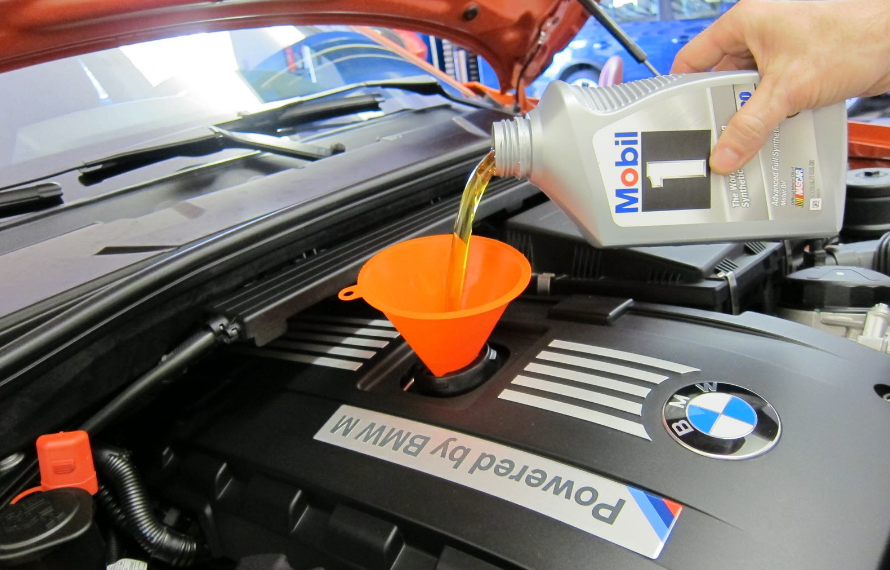BMW X3 Engine Oil Capacity: The BMW X3 is a powerful and reliable SUV, however, it requires regular maintenance to keep operating at its top.
The most essential maintenance task is to change the oil. However, how much oil does your X3 require, what kind of oil to make use of, and how frequently do you need to change it?
BMW X3 Engine Oil Capacity: The capacity of the oil in BMW X3 will vary depending on the year of manufacture and the type of engine. However, the majority of X3 models come with a capacity of 5.6 quarters.
Oil Type For BMW X3: BMW suggests the use of natural oil that is in compliance with the requirements of the BMW L-01FE specification.
This oil is made to safeguard the engine against wear and tear even in the most extreme conditions of driving.
BMW X3 Engine Oil Filter: It is crucial to change the oil filter every when change your oil. The oil filter can help get rid of dirt and other debris from the oil and keeps your engine safe and clean. BMW suggests that you use a BMW 1142 8 583/813 oil filter.
BMW X3 Oil Change Cost: The price of changing the oil in the BMW X3 will vary depending on the location where it is done as well as the type of oil you are using.
You can anticipate being charged between $150 and $225 when you have your oil changed at an auto dealership or an independent repair shop.

BMW X3 Engine Oil Capacity And Oil Type
Depending on the model year and engine type, the BMW X3’s oil capacity and suggested oil type can change. Following are some general recommendations for the BMW X3:
Oil Capacity:
- 2019–2020 Oil filter change requires 8.5 quarts (8.0 liters) for the BMW X3 sDrive30i, xDrive30i, and M40i.
- 8.5 quarts (8.0 liters) with an oil filter replacement for the 2020 BMW X3 M
- 2021-2022 Oil filter change requires 8.5 quarts (8.0 liters) for the BMW X3 sDrive30i, xDrive30i, and M40i.
- 2021-2022 8.5 quarts (8.0 liters) for the BMW X3 M with an oil filter change
Recommended Oil:
- The BMW X3 is advised to use BMW Longlife-01 FE or BMW Longlife-01 FE Plus.
- It is advised to use SAE 0W-20, SAE 0W-30, SAE 0W-40, SAE 5W-30, SAE 5W-40, SAE 10W-30, SAE 10W40, SAE 15W-40, or SAE 20W-50 viscosity synthetic motor oil.
- Always consult your owner’s manual for detailed oil recommendations tailored to your unique BMW X3 model and year.
Always adhere to the oil type, viscosity, and replacement interval recommendations stated by the manufacturer.
Remember that the information above is intended as a general guideline; it is always advisable to reference the owner’s handbook for details relevant to your particular BMW X3 model and year.
BMW X3 Engine Oil Capacity
 | Engine | Capacity/Filter Capacity Liters (LITERS) | Oil Change Intervals |
|---|---|---|---|
| X3 2.0i (2004 – 2006) | N46B20 | 4.25 | n/a |
| X3 xDrive20i (2006 – 2010) | N46B20 | 4.25 | n/a |
| X3 2.5i (2004 – 2006) | M54 B25 | 6.2 | n/a |
| X3 2.5si (2006 – 2010) | N52K | 6.5 | n/a |
| X3 3.0i (2004 – 2006) | M54 B30 | 6.2 | n/a |
| X3 3.0si (2006 – 2010) | N52K | 6.5 | n/a |
| X3 xDrive18d (2006 – 2010) | N47S D20 | 5.2 | n/a |
| X3 2.0d (2004 – 2006) | M47TU2 | 5.3 | n/a |
| X3 2.0d DPF (2004 – 2006) | M47TU2 | 5.3 | n/a |
| X3 xDrive20d (2007 – 2010) | M47TU2 | 5.3 | n/a |
| X3 3.0d (2004 – 2005) | M57TU | 7.5 | n/a |
| X3 3.0d (2005 – 2006) | M57TU2 | 7.5 | n/a |
| X3 3.0d DPF (2005 – 2006) | M57TU2 | 7.5 | n/a |
| X3 xDrive30d (2006 – 2010) | M57TU2 | 7.5 | n/a |
| X3 3.0sd (2006 – 2010) | M57TU2 | 7.5 | n/a |
| X3 3.0sd DPF (2006 – 2010) | M57TU2 | 7.5 | n/a |
| X3 xDrive35d (2006 – 2010) | M57TU2 | 7.5 | n/a |
Also, Related some Articles:
- Volkswagen Passat B5 Engine Oil Capacity
- Audi A4 2001-2008 Engine Oil Capacity
- Toyota RAV4 Engine Oil Capacity
- Volkswagen Transporter (1990 – 2011) Engine Oil Capacity
- BMW 5 E39 (1995 – 2004) Engine Oil Capacity
- Maruti Suzuki Swift AZ 2010 to 2014 Models Engine Oil Capacity
- Skoda Superb All Type Engine Oil Capacity
- Audi Q5 Engine oil Capacity And Engine Types
- Toyota Prius Engine Oil Capacity
- Suzuki SX4 Engine Oil Capacity
BMW X3, F25 (2010 – ) Engine Oil Capacity
 | Engine | Capacity/Filter Capacity Liters (LITERS) | Oil Change Intervals |
|---|---|---|---|
| X3 sDrive18i (2014 – ) | N20B16 | 5 | 30 000 km/ 24 months |
| X3 sDrive20i (2014 – ) | N20B20A | 5 | 30 000 km/ 24 months |
| X3 xDrive20i (2011 – ) | N20B20A | 4.8 | 30 000 km/ 24 months |
| X3 xDrive28i (2010 – 2012) | N52 B30 | 6.5 | 30 000 km/ 24 months |
| X3 xDrive28i (2012 – ) | N20B20A | 4.8 | 30 000 km/ 24 months |
| X3 xDrive35i (2010 – ) | N55 B30 | 6.5 | 30 000 km/ 24 months |
| X3 sDrive18d (2012 – 2014) | N47D20 | 5.2 | 30 000 km/ 24 months |
| X3 sDrive18d (2014 – ) | B47 | 5 | 30 000 km/ 24 months |
| X3 xDrive20d (2010 – 2014) | N47D20 | 5.2 | 30 000 km/ 24 months |
| X3 xDrive20d (2014 – ) | B47 | 5 | 30 000 km/ 24 months |
| X3 xDrive30d (155 kW) (2011 – ) | N57 D30 | 6.5 | 30 000 km/ 24 months |
| X3 xDrive30d (190 kW) (2010 – ) | N57 D30 | 6.5 | 30 000 km/ 24 months |
| X3 xDrive35d (2011 – ) | N57Z D30 | 6.5 | 30 000 km/ 24 months |
BMW X3 Oil Capacities (2004 – 2022)
Year | Option For Engine | Engine Oil Capacity1 (Imperial) | Engine Oil Capacity1 (Metric) | Recommended Oil Viscosity2 |
|---|---|---|---|---|
2022 | 3.0L 6-cyl S58B30T0 Turbo | 7.4 Quarts | 7.0 Liters | 0W-30 |
2022 | 3.0L 6-cyl B58B30O1 Turbo | 6.9 Quarts | 6.53 Liters | 0W-20 |
2022 | 2.0L 4-cyl B46B20O0 Turbo | 5.6 Quarts | 5.3 Liters | 0W-20 |
2021 | 3.0L 6-cyl S58B30T0 Turbo | 7.4 Quarts | 7.0 Liters | 0W-30 |
2021 | 3.0L 6-cyl B58B30O1 Turbo | 6.9 Quarts | 6.53 Liters | 0W-20 |
2021 | 2.0L 4-cyl B46B20O0 Turbo | 5.6 Quarts | 5.3 Liters | 0W-20 |
2021 | 2.0L 4-cyl B46B20O0 Turbo | 5.6 Quarts | 5.3 Liters | 0W-20 |
2020 | 3.0L 6-cyl S58B30T0 Turbo | 7.4 Quarts | 7.0 Liters | 0W-20 |
2020 | 2.0L 4-cyl B46B20O0 Turbo | 5.6 Quarts | 5.3 Liters | 0W-20 |
2020 | 2.0L 4-cyl B46B20O0 Turbo | 5.6 Quarts | 5.3 Liters | 0W-20 |
2020 | 3.0L 6-cyl B58B30M0 Turbo | 5.6 Quarts | 5.3 Liters | 0W-20 |
Year | Option For Engine | Engine Oil Capacity1 (Imperial) | Engine Oil Capacity1 (Metric) | Recommended Oil Viscosity2 |
|---|---|---|---|---|
2019 | 3.0L 6-cyl B58B30M0 Turbo | 6.9 Quarts | 6.53 Liters | 0W-20 |
2019 | 2.0L 4-cyl B46B20O0 Turbo | 5.6 Quarts | 5.3 Liters | 0W-20 |
2018 | 3.0L 6-cyl B58B30M0 Turbo | 6.9 Quarts | 6.53 Liters | 0W-20 |
2018 | 2.0L 4-cyl B46B20O0 Turbo | 5.6 Quarts | 5.3 Liters | 0W-20 |
2017 | 3.0L 6-cyl N55B30A Turbo | 6.9 Quarts | 6.53 Liters | 0W-30 |
2017 | 2.0L 4-cyl N47D20 Diesel Turbo | 5.5 Quarts | 5.2 Liters | 0W-30 |
2017 | 2.0L 4-cyl N20B20A Turbo | 5.1 Quarts | 4.83 Liters | 0W-20 |
2016 | 3.0L 6-cyl N55B30A Turbo | 6.9 Quarts | 6.53 Liters | 0W-30 |
2016 | 2.0L 4-cyl N47D20 Diesel Turbo | 5.5 Quarts | 5.2 Liters | 0W-30 |
2016 | 2.0L 4-cyl N20B20A Turbo | 5.3 Quarts | 5.02 Liters | 0W-20 |
Year | Option For Engine | Engine Oil Capacity1 (Imperial) | Engine Oil Capacity1 (Metric) | Recommended Oil Viscosity2 |
|---|---|---|---|---|
2015 | 3.0L 6-cyl N55B30A Turbo | 6.9 Quarts | 6.53 Liters | 0W-30 |
2015 | 2.0L 4-cyl N47D20 Diesel Turbo | 5.5 Quarts | 5.2 Liters | 0W-30 |
2015 | 2.0L 4-cyl N20B20A Turbo | 5.3 Quarts | 5.02 Liters | 0W-30 |
2014 | 3.0L 6-cyl N55B30A Turbo | 6.9 Quarts | 6.53 Liters | 0W-30 |
2014 | 2.0L 4-cyl N20B20A Turbo | 5.1 Quarts | 4.83 Liters | 0W-30 |
2013 | 3.0L 6-cyl N55 B30A Turbo | 6.9 Quarts | 6.53 Liters | 0W-30 |
2013 | 2.0L 4-cyl N20B20A Turbo | 5.1 Quarts | 4.83 Liters | 0W-30 |
2012 | 3.0L 6-cyl N52 B30A | 6.9 Quarts | 6.53 Liters | 0W-30 |
2012 | 3.0L 6-cyl N55 B30A Turbo | 6.9 Quarts | 6.53 Liters | 0W-30 |
2011 | 3.0L 6-cyl N52 B30A | 6.9 Quarts | 6.53 Liters | 5W-30, 0W-30 |
2011 | 3.0L 6-cyl N55 B30A Turbo | 6.9 Quarts | 6.53 Liters | 5W-30, 0W-30 |
BMW X3 Engine Oil Filter
The filter in the engine oil for the BMW X3 can vary depending on the model year and engine model. Below are the general rules:
To BMW X3 models with gasoline engines:
- For model years 2011 and up For model years 2011 and up, it is the OEM engine oil filter is BMW part number 11 42 8 516 018.
- For model years 2004 to 2010, The OEM filter for engine oils is BMW number 11 42 7 512 300. number 11 42 7, 512 300.
for BMW X3 models with diesel engines:
- For model years 2004 to 2010, The OEM engine oil filter is BMW part number 11 42 7 512 446.
- For model years 2011 and up for model years 2011 and newer, the OEM engine oil filter is BMW part number 11 42 8 515 355.
It is essential to select the proper engine oil filter for your BMW X3 to ensure proper filtering and protection for your engine. You can locate the right part number for the particular model along with the date in the owner’s manual or by consulting an authorized BMW mechanic.
How to Check Engine Oil Capacity of BMW X3
To test the oil capacity of the engine in the BMW X3, you need to take these steps:
- Place the vehicle on a level surface, then shut off your engine.
- Lift the hood, and then locate the dipstick.
- Put the dipstick back in the engine before removing it once more.
- Put the dipstick back in the engine before removing it once more.
- Examine the dipstick to find the level of oil. The dipstick will contain markings that will indicate the minimum and maximum levels of oil.
- If the level of oil is lower than what is considered to be the minimal mark then add more oil until it is at that mark.
It is crucial to remember that the level of oil should be monitored when your engine is cold. Because checking it while it is hot can result in an inaccurate reading.

bmw x3 engine oil Change
To change the oil in the engine in the BMW X3, follow these steps in general:
- Get the equipment and supplies, including an empty drain pan with a capacity of at least 10 liters, a brand new oil filter, as well as the recommended amount and type in engine oil.
- Make sure that the engine is cooling and the vehicle is sitting on an even surface.
- The cap for the oil filler must be removed as well as the drain plug for oil to empty the old oil to the drain pan.
- Replace the filter in the oil with a fresh filter and make sure the gasket is lubricated with new oil.
- Replace the drain plug for oil and tighten it up to the torque recommended.
- Replace the oil in the engine with the amount of recommended oil.
- Start the engine and allow it to run for a couple of minutes to circulate new oil.
- Verify the level of oil and add oil if needed.
- Get rid of the old filter and oil correctly.
When it comes to oil changes for the BMW X3 depends on various variables, such as model year, driving style, and engine type.
The recommended interval for oil changes could last up to 15,000 miles for certain BMW X3 models with synthetic oil.
However, certain BMW mechanics and owners suggest changing the oil every 7,500 – 10,000 miles to guarantee optimal engine performance and durability.
It is recommended to refer to the owner’s guide or a BMW dealer for the suggested interval for oil changes to suit your specific BMW X3 version and your driving habits.
Final Word
BMW recommends that their cars, including the BMW X3, use motor oil that satisfies the BMW Longlife-01 FE or BMW Longlife-01 FE Plus standard.
BMW also suggests motor oil with a viscosity of SAE 0W-20, SAE 0W-30, SAE 0W-40, SAE 5W-30, SAE 5W-40, SAE 10W-30, SAE 10W-40, SAE 15W-40, or SAE 20W-50.
As long as it fulfills the BMW Longlife-01 FE or BMW Longlife-01 FE Plus standard, as well as the API SN (Resource Conserving) and ILSAC GF-5 specifications, it is acceptable to use a 5W-40 synthetic oil in your BMW X3.
However, it is always advised to consult the BMW X3 owner’s manual for precise oil recommendations for your model and year.
Using the manufacturer-recommended oil type and viscosity will extend the life of your engine and preserve its performance and fuel efficiency.
For more posts visit our website: https://engineoiil-capacity.com/
BMW X3 Oil Capacity FAQs
How much oil does a BMW X3 take?
Model year and engine type affect BMW X3 oil capacity. BMW X3 rules: Capacity: 2019–2020 BMW X3 sDrive30i/xDrive30i/M40i: 8.5 quarts (8.0 liters) with oil filter replacement. 2020 BMW X3 M: 8.5 gallons (8.0 litres). 2021-2022 BMW X3 sDrive30i/xDrive30i/M40i: 8.5 quarts (8.0 liters) with oil filter replacement.
2021-2022 BMW X3 M: 8.5 gallons (8.0 litres). Because engine, transmission, and drivetrain configurations differ, it’s best to check your BMW X3’s owner’s manual for oil capacity.
What kind of oil does the BMW X3 take?
5W-30 Pento High Performance is a 100 percent synthetic, high-performance engine oil developed to fulfill the needs of current vehicles with extended oil change intervals.
Pento HP is ideal for all diesel and gasoline engines with turbochargers, as well as non-turbocharged vehicles requiring 5W-30 motor oil.
How often does a BMW X3 need an oil change?
BMW recommends that you change the oil and filter in your 2019 BMW X3 every 3,000 to 5,000 miles if you use conventional oil. To learn how frequently you should maintain your automobile, see your owner’s handbook and speak with your dealer.

